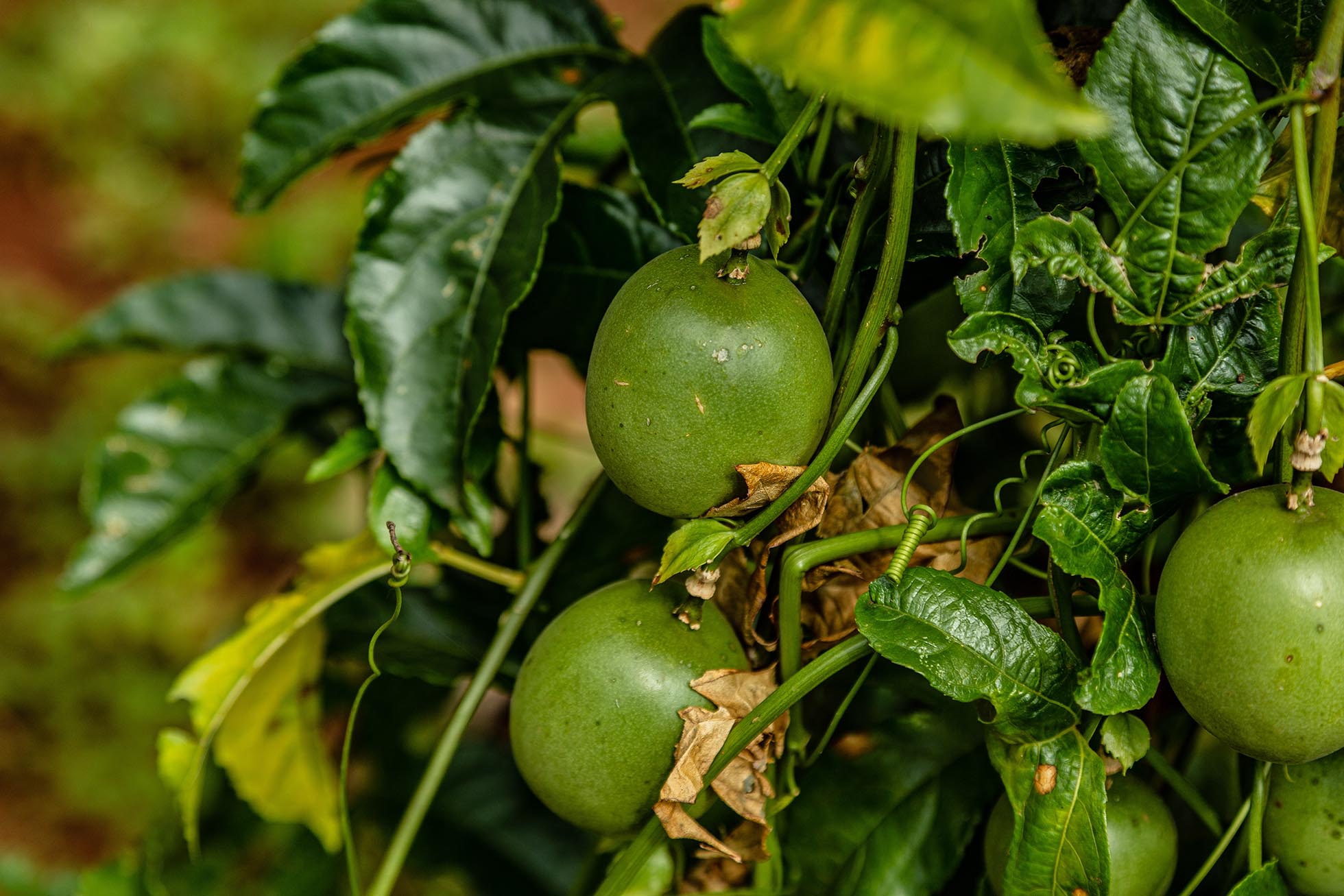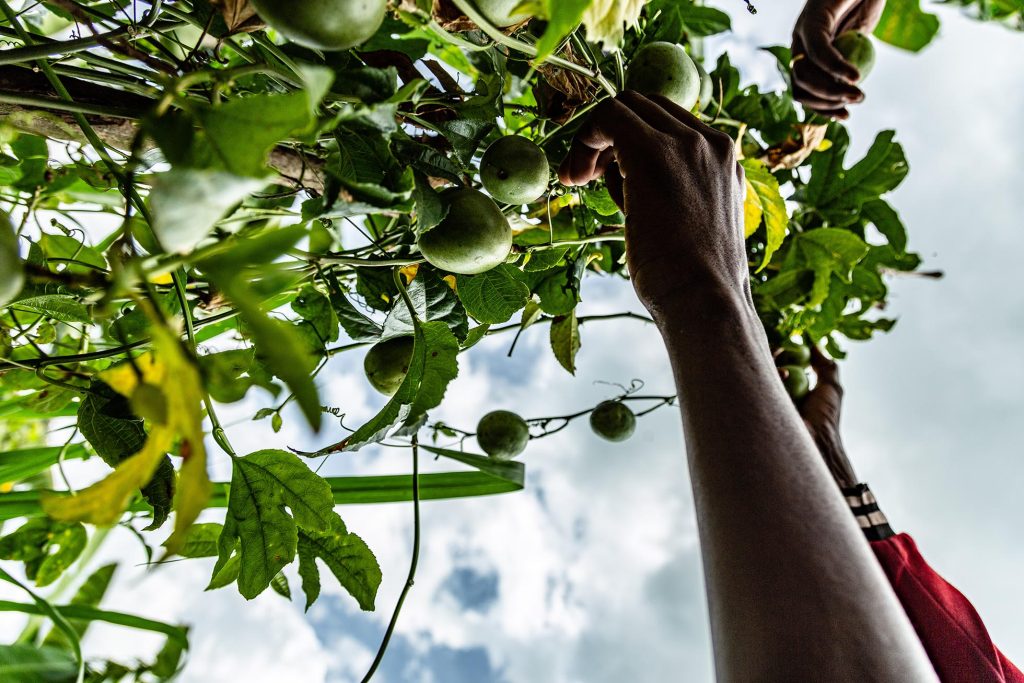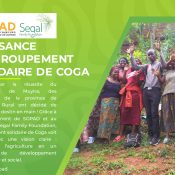
Maracuja: a gap in the value chain
Passion fruit (Maracuja) stands at the top among fruits dominating the agro-food industry market in Burundi and is yielding positive results for farmers engaged in its production. This crop nowadays facilitates the establishment of numerous juice and derivative processing enterprises, leading to job creation, especially for the youth. Also known as the passion fruit and belonging to the Passifloraceae family, this fruit shines not only in fruit salads or desserts in some households but also serves as a popular refreshing option in the beverage market. Despite its potential, this plant is underutilized in Burundi, revealing several weaknesses in its value chain.
La SOPATRAM (Société de Production Agricole et de Transformation Moderne) is an Agricultural Production and Modern Transformation Company. Since 2020, it has specialized in the processing of fruit juices, particularly passion fruit juice. Its objectives are to promote fruits produced in Burundi, create employment for young people and women, and generate income to support its mission of assisting vulnerable young girls and women. Despite being resilient in the production process, SOPATRAM faces some challenges related to raw material supply (the first link), collection and transportation (the second link), processing (the third link), and marketing (the final link) in the value chain.
Solutions in Passion Fruit Production
According to Divin Mugisha, an agronomist, Passion Fruit has always been considered a wild fruit in some regions. This is why it is not extensively cultivated in Burundi, also due to the belief among several farmers that this fruit doesn't have a consistent market. Since 2010, agro-processing companies have emerged, with many focusing on fruit juice production, including Passion Fruit. Suddenly, this fruit becomes a pawn in competition and becomes a scarce commodity in the market, leading to a surge in its price.
Fabien Dusabe, also known as Gisage, a farmer, asserts that Passion Fruit could be produced in sufficient quantities if farmers were educated about its cultivation. He prefers to cultivate Passion Fruit throughout his enclosure to make use of supports since it's a creeping plant. "With this technique, the yield is not good at all! On the other hand, if I had the means, I could exploit a large field," he claims. There seems to be a paradox between producers and industrialists: while some lament the lack of market outlets, others cannot source enough to supply their machines.

To address this issue, SOPATRAM has established a model field in Kiganda to raise awareness among farmers in this region to start growing this plant, which could help them generate income. Through the activities of the COPAD cooperative, this company has taught the surrounding population agricultural techniques to enable them to implement them in their households.
In addition to the model field initiated in Kiganda, SOPATRAM, through COPAD, organizes groups of young producers and collectors of maracuja in the provinces of Bujumbura Rural, Rumonge, and Bubanza. Each group organizes itself, and SOPATRAM, a consortium between COPAD, SOPATRAM, and TWINAGURE, rents a model field to teach the group members agricultural production techniques to apply them in their respective fields. Additionally, SOPATRAM ensures a permanent market outlet for them.
Fruit collection and market distribution
Maracuja collection and transportation represent another crucial aspect of the value chain, involving young people and women for various distribution markets. The primary market for this fruit consists of young people and women engaged in trade along roadsides, street corners, and trading centers. These individuals obtain maracuja from first-tier suppliers known as "abaranguzi." For almost all regions of the country, whether in Kirundo, Bubanza, Makamba, or Cankuzo, the retail price of one kilogram of maracuja varies between 1,500 and 1,800 BIF.
Another market segment involves young collectors who supply the fruit to processing units. Régis Bukiribigi, a native of Kayanza and a maracuja supplier to a processing unit, mentioned that his client places an average order of 2,000 kg per week, earning him around 800,000 BIF per month—enough to afford university tuition and a good residence in a decent neighborhood in the city of Bujumbura.
Even though the passion fruit market can offer wonders for young people and women, transportation remains a challenge, causing prices to rise. Anita Misago, a fruit trader at the COTEBU market, states that selling passion fruit is delicate and very tiring work. It takes at least two days to collect and sort the fruits, half a day for transportation from Kayanza, and one day to sell the fruits. Therefore, they can only make one round per week.
Transformation and Marketing: The Challenges
Another crucial link in the value chain is the processing stage. It not only allows for long-term preservation but also enhances the value of the derived products. This stage remains the hope for the entire value chain, although at times it presents several challenges. During peak seasons, processing units face problems because, often artisanal, they lack the machine capacity to handle the entire production. Even if they manage, the market becomes a limiting factor while preservation becomes a Red Sea crossing. During low seasons, the price of raw material rises, coupled with the near-total lack of fruits observed from September to November.
To address this issue, SOPATRAM plans to establish a post-harvest loss management system by producing long-lasting passion fruit pulps that will serve as raw material during periods of scarcity. This will help strengthen the value chain so that each link can benefit from it.
Editorial, ID




